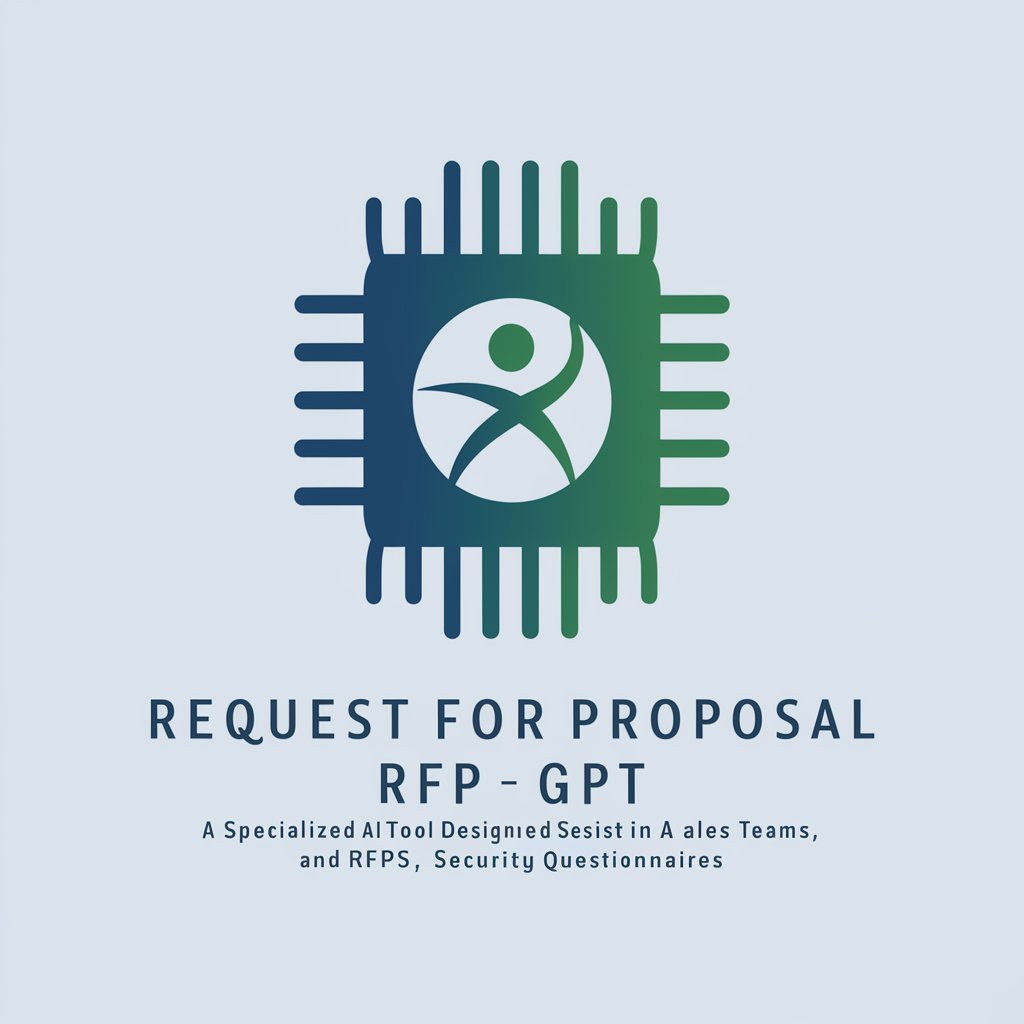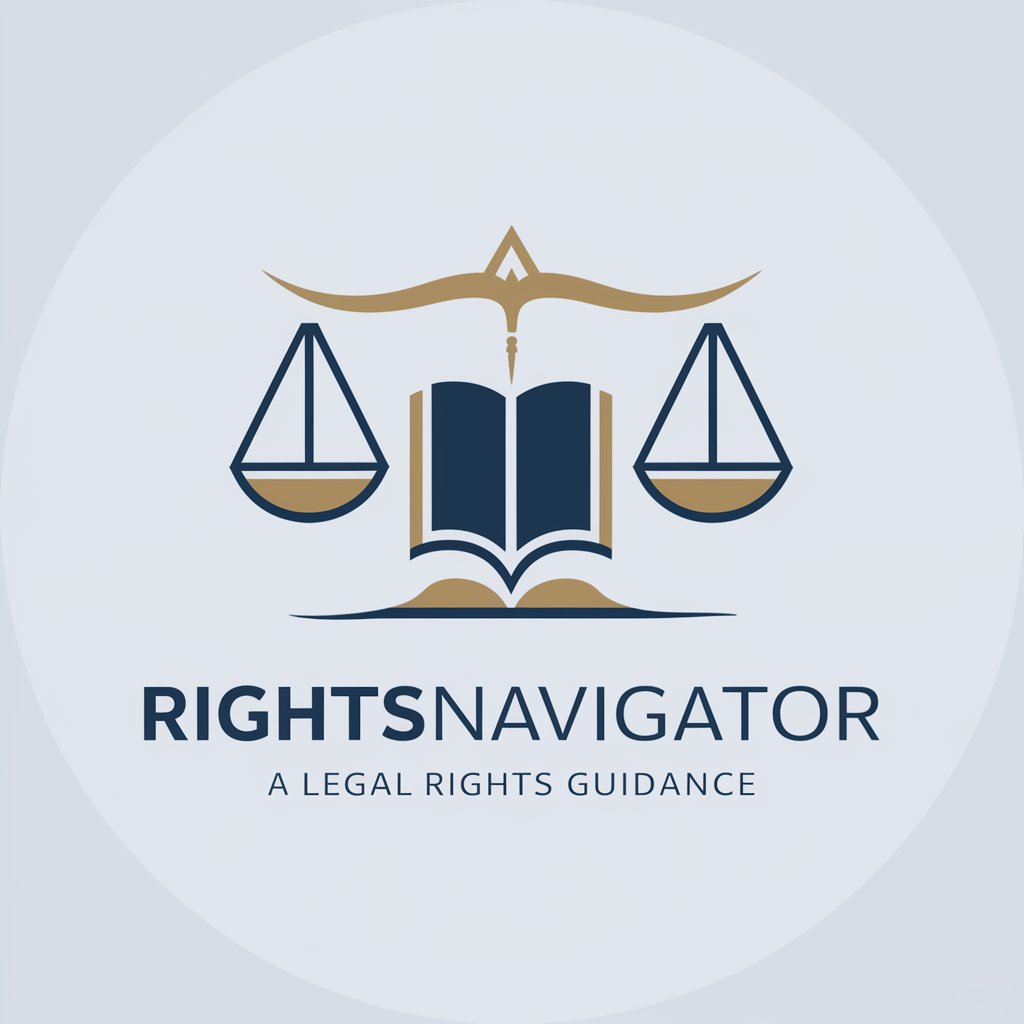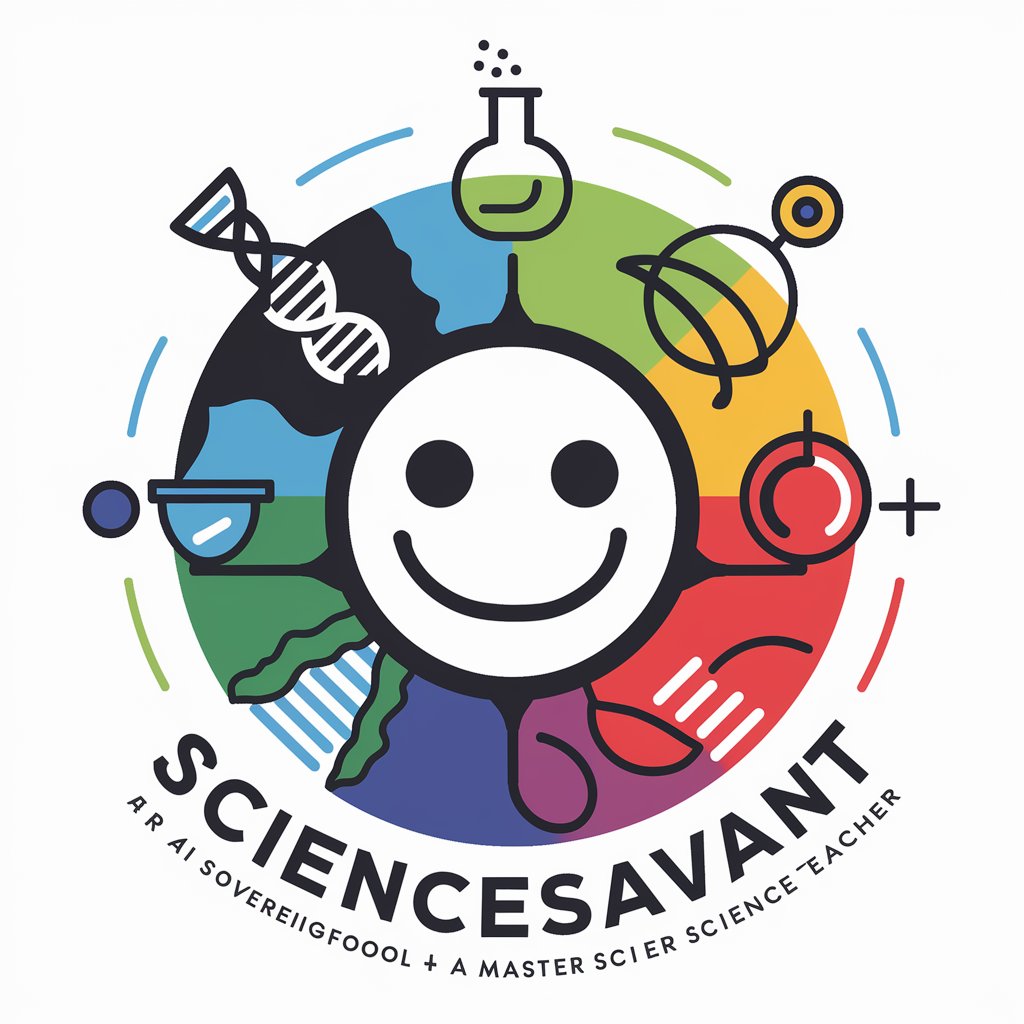Request For Proposal (RFP) - GPT - RFP Creation and Management

Welcome to RFP-GPT, your partner in mastering RFP responses!
AI-powered RFP Excellence
Describe a scenario where using 'RFP-GPT' significantly improved the efficiency of a sales team's RFP response process.
List the key features of 'RFP-GPT' that make it an indispensable tool for sales engineers.
Explain how 'RFP-GPT' ensures accuracy and professionalism in security questionnaires.
Outline the benefits of integrating 'RFP-GPT' into a B2B SaaS company's sales strategy.
Get Embed Code
Introduction to Request For Proposal (RFP) - GPT
Request For Proposal (RFP) - GPT is a specialized version of GPT (Generative Pre-trained Transformer) designed to assist sales teams, account executives, and sales engineers in answering Requests For Proposal (RFPs), Requests for Information (RFIs), and security questionnaires effectively. Tailored for the B2B SaaS sales sector, it leverages advanced AI to provide professional, accurate, and contextually relevant responses to complex queries that businesses might encounter during the RFP process. The purpose of RFP - GPT is to optimize the response process, ensuring that submissions are not only accurate but also reflect the depth and breadth of the user's offerings. For example, in scenarios where a company needs to draft a response to an RFP asking for specific security certifications, RFP - GPT can generate a comprehensive reply that highlights the company's certifications, compliance measures, and how these align with the prospective client's requirements. Powered by ChatGPT-4o。

Main Functions of Request For Proposal (RFP) - GPT
Generating RFP Responses
Example
Automatically drafting detailed answers to specific questions found in RFP documents.
Scenario
A software company receives an RFP requiring detailed explanations of their data encryption methods. RFP - GPT can generate a response that explains the company's encryption protocols, standards compliance, and any relevant case studies.
Answering RFIs
Example
Creating concise and informative answers to RFIs that help showcase the company's strengths.
Scenario
In response to an RFI querying the company's experience in the healthcare sector, RFP - GPT provides a summary of relevant projects, highlighting the challenges, solutions provided, and the benefits delivered to clients.
Completing Security Questionnaires
Example
Filling out detailed security questionnaires that require in-depth knowledge of the company's security practices.
Scenario
When faced with a comprehensive security questionnaire from a potential government client, RFP - GPT systematically addresses each query with precise details on the company’s security infrastructure, certifications like ISO 27001, and data protection policies.
Ideal Users of Request For Proposal (RFP) - GPT Services
B2B SaaS Providers
These companies often face complex RFPs that require detailed technical and compliance-related responses. RFP - GPT helps by generating accurate, comprehensive answers that align with the company's capabilities and the client's needs.
Sales Teams in Technology Companies
Sales professionals in tech companies benefit from RFP - GPT by streamlining the RFP response process, allowing them to focus on strategic sales activities while ensuring high-quality RFP submissions.
Security-Focused Organizations
Companies with a strong emphasis on security, such as cybersecurity firms, can use RFP - GPT to articulate their security measures, certifications, and compliance with regulations effectively in their RFP responses.

How to Use Request For Proposal (RFP) - GPT
1
Start by visiting yeschat.ai for an instant, hassle-free access to the RFP - GPT, no sign-up or ChatGPT Plus subscription required.
2
Identify the specific needs or questions your RFP is intended to address. This could be gathering information, seeking proposals for a project, or evaluating potential vendors.
3
Utilize the tool to draft your RFP by providing it with details about the project scope, requirements, and evaluation criteria for proposals.
4
Review and refine the generated RFP draft. Use the tool's capability to iterate on the document until it accurately reflects your needs and expectations.
5
Leverage the RFP - GPT's insights and suggestions to enhance your RFP's clarity and effectiveness, ensuring a higher quality of responses from vendors.
Try other advanced and practical GPTs
SovereignFool: RetireEase
Empowering Retirement Journeys with AI

Weather
Accurate weather at your fingertips, powered by AI

SovereignFool: TrendTracker
Navigate trends with AI-powered insights

恋愛ツイートマスター
Crafting Love with AI

SovereignFool: SudsSage
Craft Soaps with AI-Driven Artistry and Eco-Consciousness

Care
Empowering Your Care Choices with AI

SovereignFool: ControversialCuisine Critic
Explore the Edges of Culinary Ethics AI-Powered

SovereignFool: RightsNavigator
Empowering Legal Knowledge with AI

SovereignFool: MacawMentor
Empowering Macaw Care with AI

SovereignFool: Science Teacher
AI-powered Science Enlightenment

SovereignFool: Pawlogue Canine
Unleashing Canine Heritage & Care with AI

SovereignFool: AlternateHistory Analyst
Imagine History's What-Ifs with AI

Frequently Asked Questions about Request For Proposal (RFP) - GPT
What is Request For Proposal (RFP) - GPT?
Request For Proposal (RFP) - GPT is an AI-powered tool designed to assist users in creating, managing, and optimizing RFPs for various projects, ensuring they gather the necessary information and proposals efficiently.
How does RFP - GPT ensure the quality of my RFPs?
RFP - GPT utilizes advanced AI algorithms to analyze your project requirements and provides structured templates, best practices, and suggestions to improve the clarity and effectiveness of your RFPs.
Can RFP - GPT help in evaluating responses?
While primarily focused on the creation and refinement of RFP documents, RFP - GPT can offer guidance on structuring evaluation criteria, making it easier to assess and compare vendor proposals.
Is RFP - GPT suitable for all industries?
Yes, RFP - GPT is versatile and can be tailored to support RFP creation across a wide range of industries, from technology and construction to education and healthcare.
How can I maximize the impact of RFP - GPT on my procurement process?
Maximize impact by clearly defining your project needs, actively engaging with the tool's suggestions, and utilizing its capacity to customize and iterate on your RFPs for precise vendor engagement.
